As Yibo Wood, Global Coordinator for the USDA’s Food and Nutrition Service, explains, “Connecting children around the world to help foster healthy eating habits in school and at home, and to share policies, practices, and research. These were the aims when the idea of an International School Meals Day emerged 10 years ago. It was envisioned to raise awareness of the importance of teaching children good nutrition, and that very idea has been the central objective of ISMD as we celebrate it each year around the world.”
As part of the celebration, the UN WFP, the Ministry of Education and Science of the Kyrgyz Republic and SIFI organized this huge and exciting educational campaign. "The goal is to raise the awareness of parents and children about a healthy lifestyle and inspire them to follow these principles as a family," - the head of the UN WFP office in Kyrgyzstan, Ram Saravanamuttu emphasized.
On March 10th, the official WFP social network sources launched an exciting online Magical Country of Kitchenville Quest, where the main goal was to defeat the malicious Hamburger and its company. Each player was given five tasks, by completing all of them, the players had the opportunity to win prizes. But, most importantly, when given a magical digit for each accomplished task, children and their parents learned about the basics of healthy and balanced diet.

The online campaign turned to be unprecedented in terms of participation, engaging more than 600 thousand social network users. Popular bloggers of Kyrgyzstan became a sort of ambassadors for the campaign. They completed the Quest tasks and posted videos on their blogs.
Family doctor Altynay and her children filmed an experiment proving that soda is harmful for our health and that water, on the contrary, gives us energy. It consisted in taking two identical lettuce leaves, put one in a bowl filled with water, and the other in a bowl with soda. Next day you could see the difference. The leaf put in water did not lose its freshness, but the one in the soda looked noticeably withered.
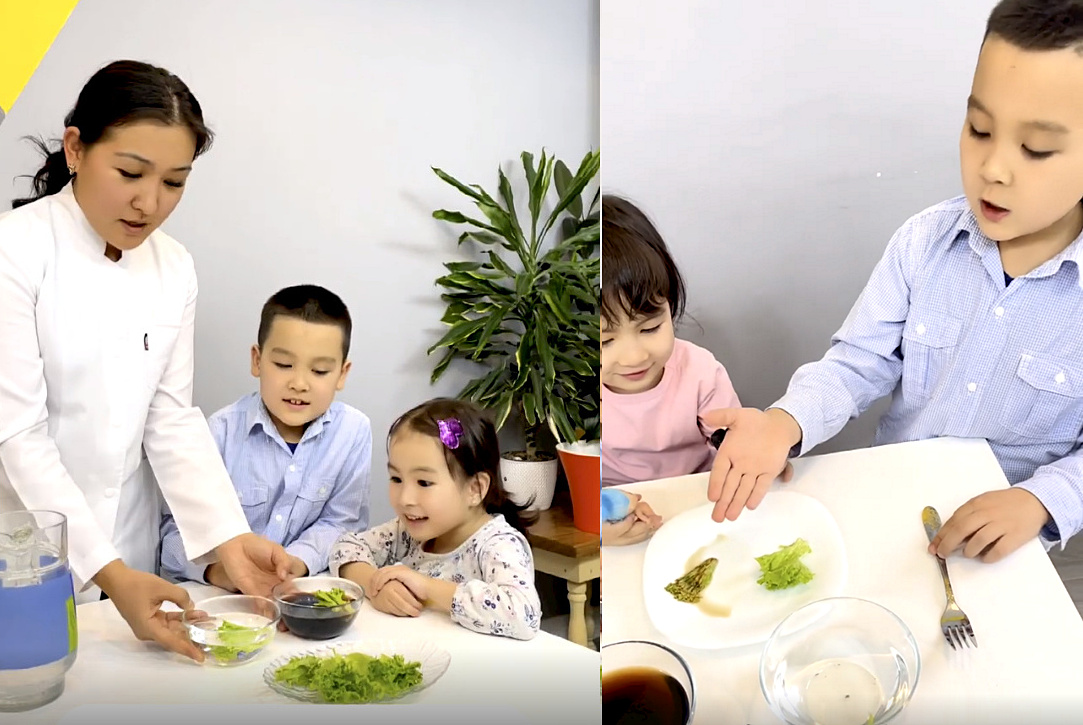
Everyone was invited to repeat this and other simple experiments and post a video on their social network pages. Their friends, who saw these experiments, also joined the Online-Quest. And so it continued with each new video that was posed, the number of families who learned the basics of healthy eating also increased.
There are five elements that compose a balanced diet: vegetables, fruits, whole grains, proteins and dairy. If you present them on a plate divided into four parts and give some examples, any child will remember this.
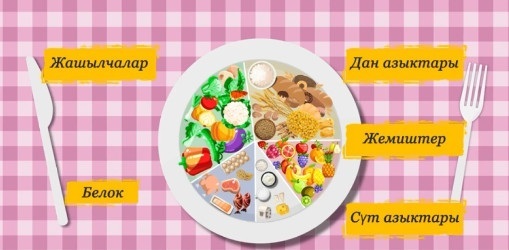
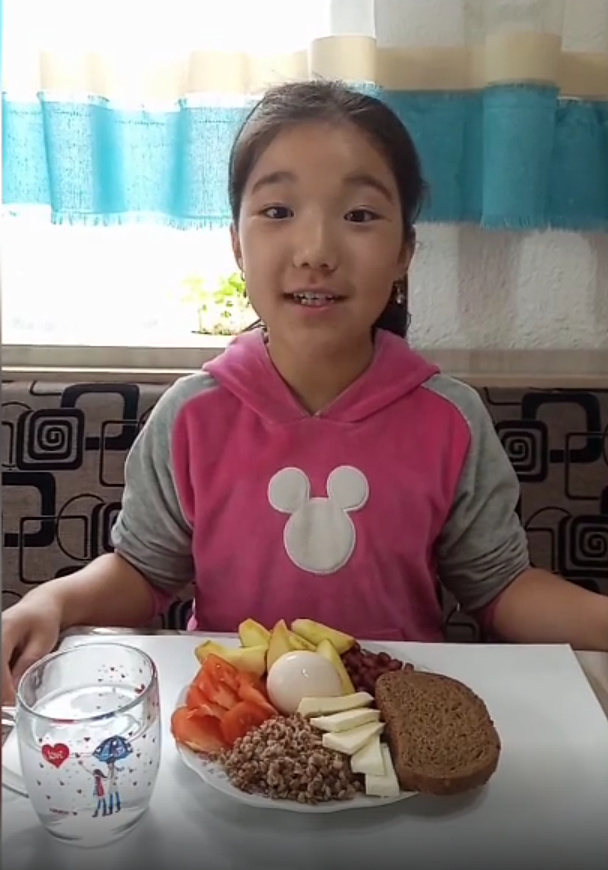
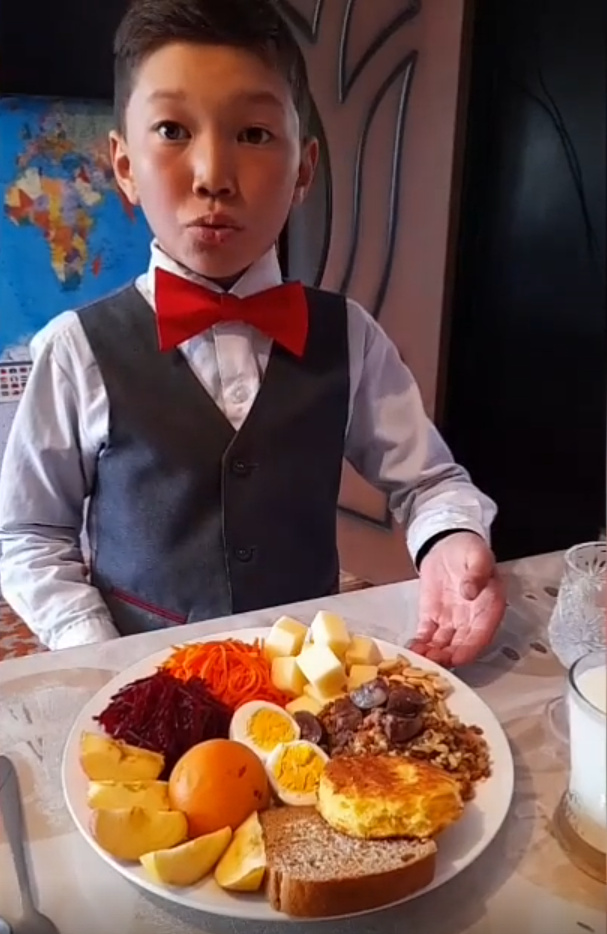
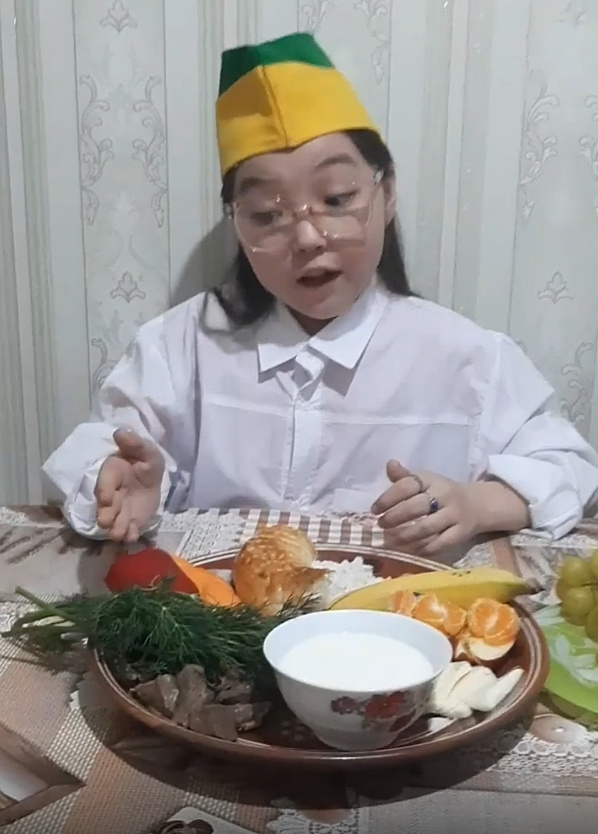
Having food of all colors of rainbow on a plate does not only look beautiful, but it is also another principle of a balanced diet. Eco blogger Zeynep and her children turned this principle into an exciting activity: "This is just an incredible experience! The children were shocked, for the first time they saw that you can get paints from vegetables! "
All children love sweets, so the task about negative impact of large amounts of sugar was utterly relevant. Parents and their children were to study the labels of various products and discover that not only sweets and cookies contain sugar. It can appear by other names, such as: fructose, honey, syrup… Moreover, it turns out, you can cook delicious fruit desserts, which will be much healthier than ordinary sweets from supermarket.
Popular actor and showman Nursultan Kursanali-uulu and his family set the tone for the fifth final stage of the Quest. It was dedicated to fats, they are a mandatory component of balanced diet. But the diet should contain only natural fats, which, for example, can be found in milk. To perform a simple experiment, you will need acrylic paints and dishwashing soap. It is fascinating and illustrative for both children and adults. Thanks to this video you could find out that nuts, eggs, fish, ayran and vegetable oil also contain healthy fats.
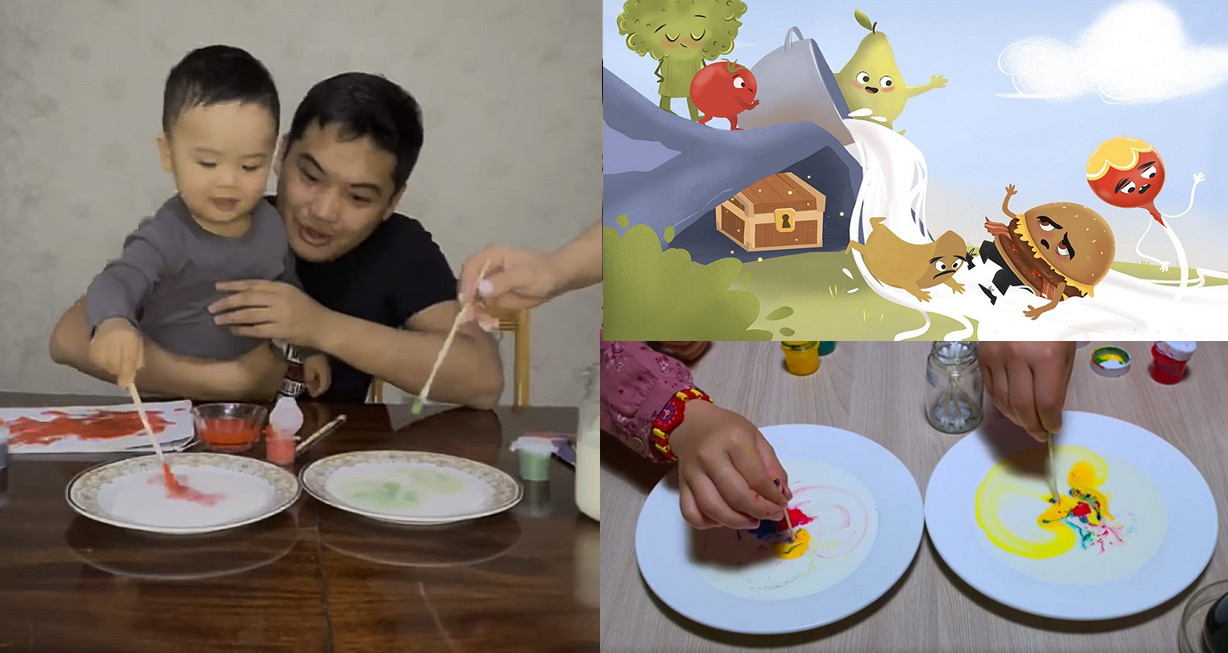
Social network users and their children actively joined these fascinating experiments. 120 participants of the Online-Quest managed to complete all 5 tasks. The first ten received prizes: bicycles, sports equipment for active games, a board game from WFP and SIFI "Journey with Taste".
However, not everybody tend to actively use social networks. The organizers of the educational campaign did not forget about them either. A fun interactive play called "In Celery’s Stalkson laboratory" was performed for younger schoolchildren in 35 schools across the country. The characters were played by high school students.
In fact, the theatrical performance turned to be interesting for those children who had previously taken part in the Online-Quest, because the event became an addition to the adventures in the magical country of Kitchenville. Only now, the former villain Hamburger was feeling sick and needed help, as a result of bad eating habits.
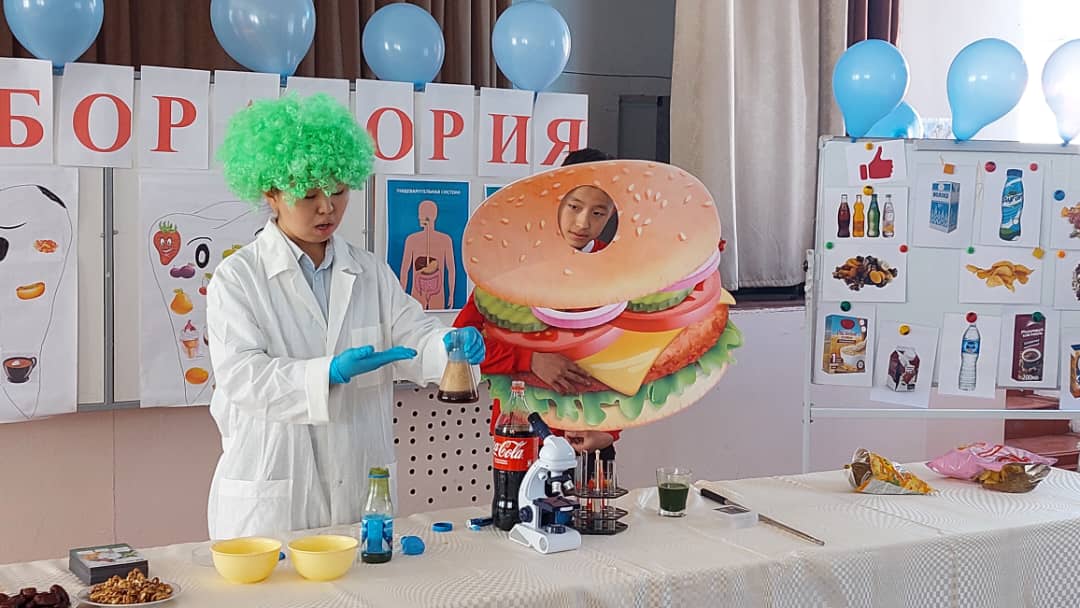
The digestion process can be explained even to the younger students, if using illustrations and fascinating material. In order to do so, take an uninflated balloon and imagine that this is our stomach. You can put pieces of dry bread in there, as an example of unvaried diet, you can see that the balloon, that is, the stomach, does not feel comfortable: the outer part becomes bumpy and uneven. The thing changes when we pour water in there, compering this to the magical healthy diet that includes vegetables, fruit, soups, salads, whole grains, meat and dairy. Our stomach, the balloon is full and its walls are smooth and even.
Other principles of healthy eating were presented in form of games and limericks that made it easier for children to remember. At the end of this joyous lesson there was a workshop dedicated to the preparation of healthy sweets from nuts and dried fruits. Anyone can prepare them following the recipe from our collection "Little Chef".

It is also important that schools that participate in the WFP project "School Meals" apply all these rules in practice. So, the mother of second-graders from the village of Bokonbaeva, Issyk-Kul region, Burul Mambetova, is very pleased with the organization of school meals in the local school: "Hot meals are served for lunch every day”. The menu includes salads made from fresh vegetables. This is very important for the health of the child. In other words, I don’t worry about my children’s nutrition".
This is how International School Meals Day turned into a celebration that lasted the whole month and involved thousands of local schoolchildren and their parents. This means that another step has been taken towards the upbringing of a new generation - a generation following the principles of a healthy and balanced diet.
